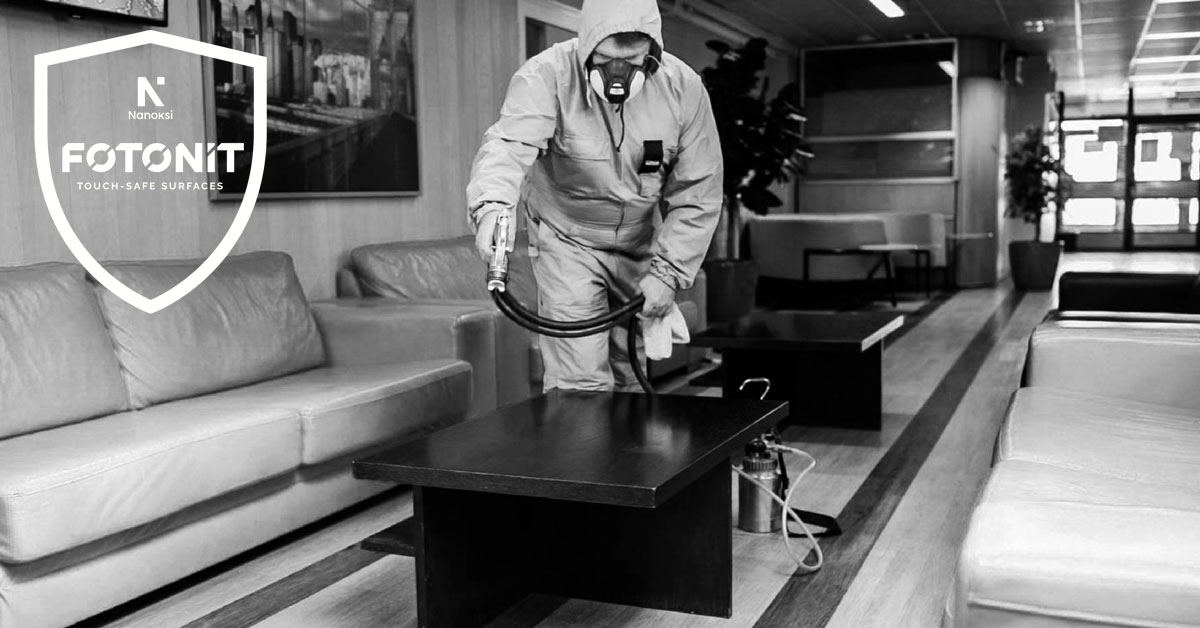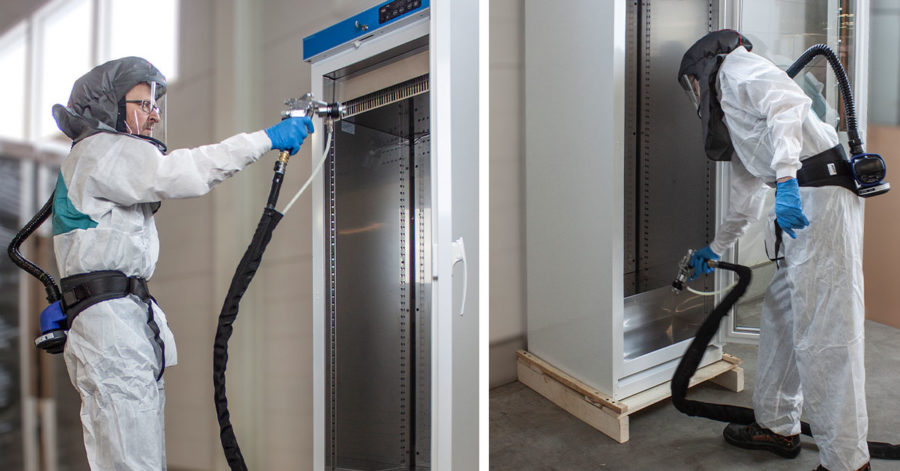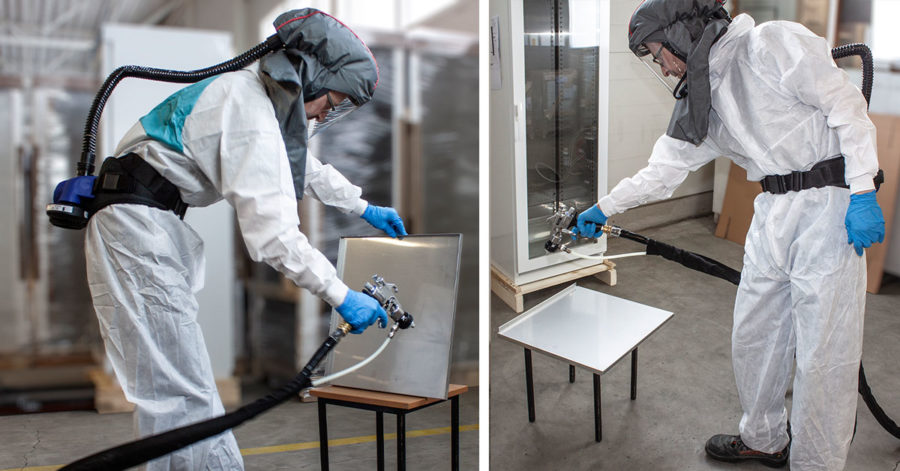
High-quality medical storage devices protected with Nanoksi Fotonit -photocatalytic coating
Festivo-Porkka Group manufactures high-quality equipment for storing medicines. The door pullers and control keypads of the MED and MEDLAB series medicine storage refrigerators have been treated with a new innovative self-disinfecting, Nanoksi Fotonit photocatalytic coating, that protects the surface of the device from microbes. As a factory-fitted accessory, the interiors of the equipment can also be treated with this coating; in this case, the device is also equipped with a disinfection lamp. Thanks to these measures, the components of the device are protected against microbes (bacteria, fungi, mold, viruses).

Protect surfaces with light and nanotechnology
In co-operation with Nanoksi Finland Oy, a light-activated antimicrobial Nanoksi Fotonit photocatalytic coating is available for Festivo-Porkka Group’s refrigeration equipment to improve safety and hygiene. The Nanoksi Fotonit photocatalytic coating is a new innovative self-disinfecting solution to protect the device surfaces from microbes.
The Fotonit coating is a durable solution for protecting surfaces, as it lasts for years, depending on consumption. It is a completely safe and harmless solution for people, animals, and the environment to protect surfaces.
Improve safety with Nanoksi Fotonit photocatalytic coating
As the name implies, the Fotonit coating is activated by light, making the surfaces contact-safe by destroying viruses and other pathogens.
The result is a chemical reaction that quickly destroys microbes and the structures of VOCs (Volatile Organic Compounds). The activation of the Fotonit coating in the dark has been enhanced by the addition of silver, also known as an antimicrobial agent.
The coating has a significant impact on the hygiene and cleanliness of premises and surfaces, as self-disinfecting surfaces remain hygienic without strong chemicals, with protection being a permanent solution as the coating is reactivated by light over and over again.
- Nanoksi Fotonit photocatalytic coating improves hygiene. It works all the time.
- The Fotonit coating quickly destroys 99% of pathogens.
- Reduces the formation and spread of dangerous bacteria and viruses.
- Reduces the need to use strong detergents.
- Reduces sick leave and makes work more efficient.
- Almost all materials are coatable.
- An effective way to stop various microbes
An effective way to stop various microbes

The Fotonit coating is effective against envelope viruses (e.g. Influenza A, SARS, MRSA) and the food bacteria (e.g. Listeria, Salmonella, Coli). Both influenza and coronavirus are envelope viruses. According to the similar chemical structure of these viruses, the effect on the coronavirus should be similar to that on influenza A.
Available for all our refrigeration appliances – protect your home refrigeration appliances, medicine storage cabinets and commercial kitchen appliances
Our experts pre-install the Fotonit coating at our factory, or alternatively as a service at the customer’s premises on site. Installation is quick, and flexible and the coating does not change the appearance, gloss or tactile feel of the surfaces.
During installation, the catalytic coating agent is sprayed on the surfaces to be protected, such as levels, doors, handles and buttons. The coating is very durable and, for example, in household refrigeration equipment, the coating lasts for years.
Ask for more and ask for a quote!